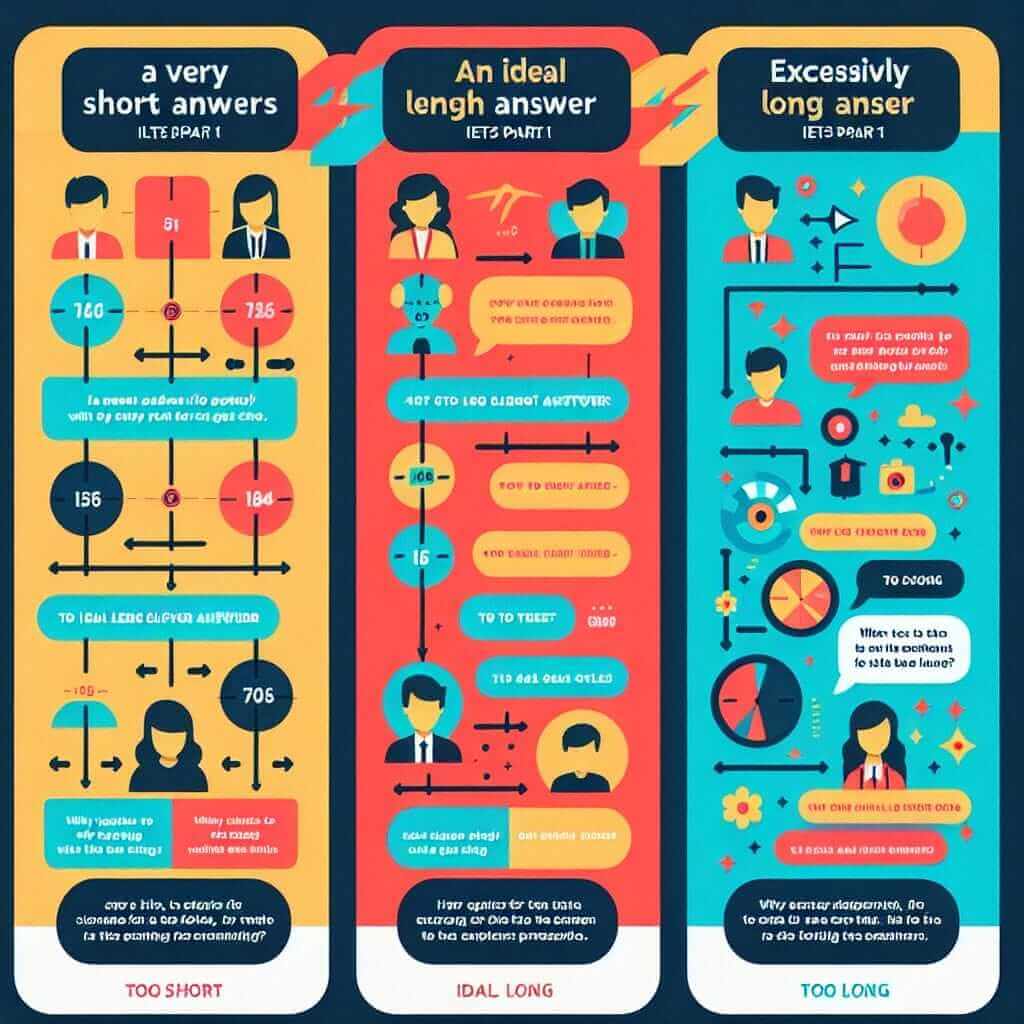As an IELTS instructor with over two decades of experience, I’ve encountered countless students grappling with the nuances of the IELTS Speaking test. A common concern that arises is: “How long should my answers be in Part 1?”
This is a valid question because while the IELTS Speaking test assesses fluency, it’s not about delivering monologues. It’s about showcasing your ability to engage in a natural, flowing conversation. Let’s delve into the specifics of Part 1 and how to optimize your responses.
Understanding IELTS Speaking Part 1
Part 1 focuses on getting to know you – your interests, hobbies, and everyday experiences. The examiner will ask you a series of questions on familiar topics, aiming to assess your ability to:
- Provide relevant information: Answer the question directly, offering pertinent details.
- Speak fluently and coherently: Maintain a smooth flow of speech, using linking words and cohesive devices effectively.
- Use a range of vocabulary: Demonstrate your lexical resource by incorporating varied and appropriate vocabulary.
- Use accurate grammar: Showcase your grammatical range and accuracy in sentence construction.
So, How Long Should You Speak?
There’s no magic number, but a good rule of thumb is to aim for answers that are 2-3 sentences long. This provides sufficient space to address the question adequately without being overly brief or excessively verbose.
Consider these points:
- Avoid one-word or extremely short answers: These can make you appear hesitant or lacking in language skills.
- Refrain from lengthy, rambling responses: While enthusiasm is appreciated, overly long answers can affect coherence and lead to irrelevant information.

Illustrative Examples
Let’s examine a couple of examples to illustrate the ideal answer length:
Examiner: What kind of music do you enjoy listening to?
Candidate 1: Pop music. (Too short)
Candidate 2: I’m quite fond of pop music, especially upbeat and catchy tunes. I find it really uplifting, and it’s a great way to unwind after a long day. (Just right)
Candidate 3: Well, I’m really into pop music, but not all types. I love the kind that makes you want to dance, you know? I listen to it on my way to work, when I exercise, and basically whenever I need a mood boost. My favorite artists are… (Too long)
Key Tips for Part 1 Success
- Listen attentively: Before formulating your response, ensure you fully understand the examiner’s question.
- Expand on your answers: Instead of just stating facts, provide reasons, examples, or anecdotes to make your responses more engaging.
- Practice regularly: Familiarize yourself with common Part 1 topics and practice speaking about them naturally and spontaneously. Record yourself to identify areas for improvement.
- Don’t memorize: IELTS examiners are adept at detecting memorized responses. Focus on developing the skills to communicate effectively on a range of topics.
In Conclusion
Mastering IELTS Speaking Part 1 is about finding the sweet spot between brevity and elaboration. By providing concise, well-structured answers that showcase your language proficiency, you’ll be well-positioned for success in this crucial part of the test. Remember, confidence and clear communication are key!